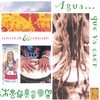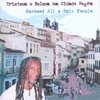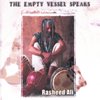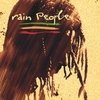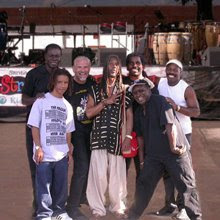











Intro : Calypso Rose / I am Back
Special Show Celebrating the Female Voices of the African Diaspora!
Set One:
1. Kayini Wura / Oumou Sangare / Ko Sira
2. Guzophela / Zap Mama
Set Two:
1. Nweti / Amoya / Cineta
2. Yachilwi Yachali / Yosefa
3. Avelo / Tarika / Son Egal
Set Three:
1. Nin Hun / Maryam Marsal / Journey
2. La Voz de Experiencia / Celia Cruz y La India / Carnaval de Exitos
3. Forever / Tarika
Set Four:
1. Ponta de Areia / Elis Regina / Live
2. In Brasil / Flora Purim / Every day, Every night
3. No Love / Erykah Badu / Baduizm







































